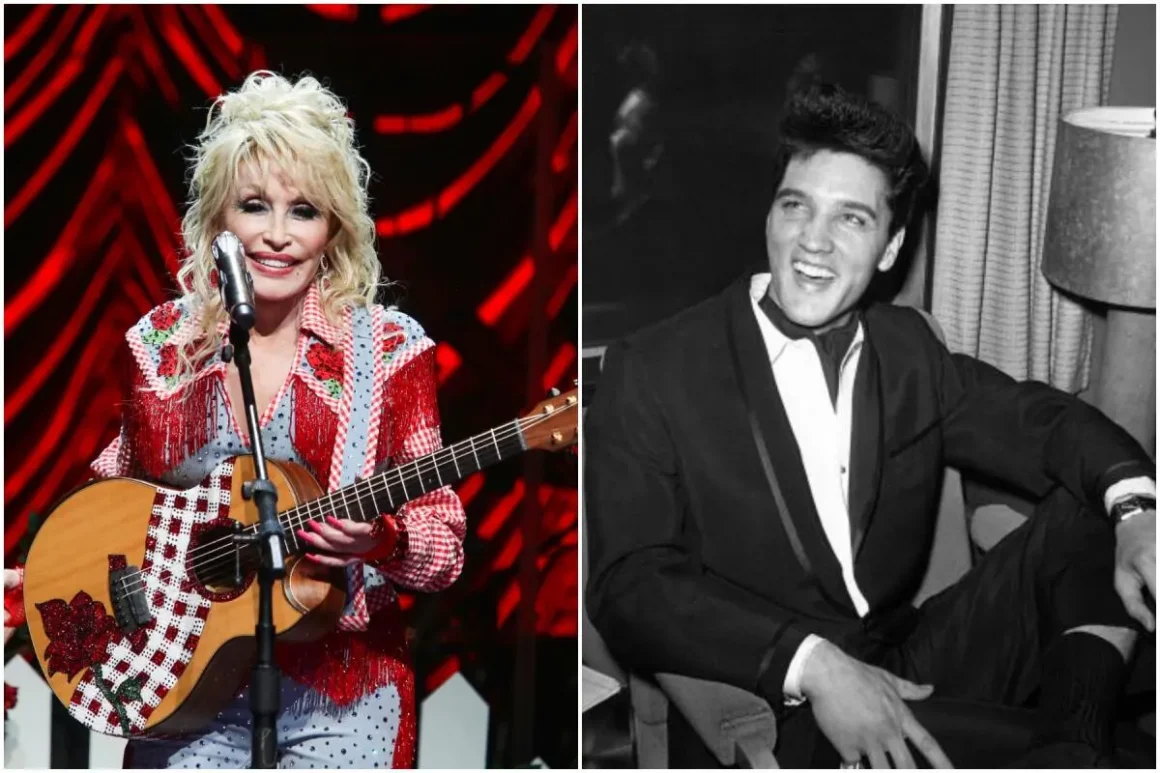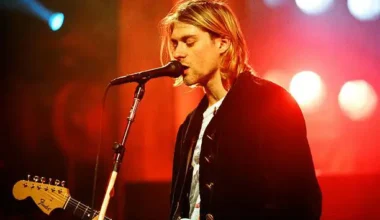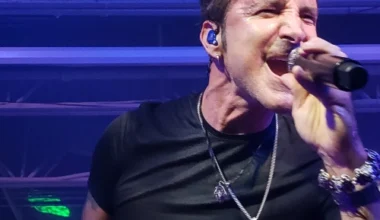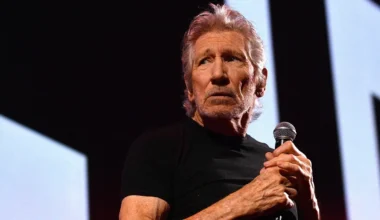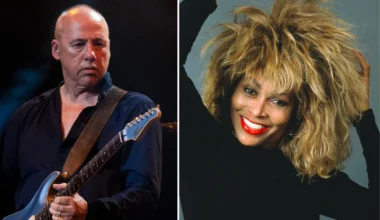Elvis Presley and Dolly Parton are two of the most famous people in music history. Parton is regarded as a global treasure, while Presley continues to be remembered as the King in popular culture. But at best, the figures’ relationship was tense, and at worst, downright hostile.
Parton’s heartbreak anthem, “I Will Always Love You,” plays in the closing moments of Sofia Coppola’s latest film, Priscilla. Coppola’s film refuses to exalt the musician any longer and instead takes a hard look at the realities of the couple’s relationship, based on Priscilla Presley’s autobiography Elvis and Me. Coppola is brave enough to tackle Presley’s shortcomings and bad behavior, humanizing him in a way that Baz Luhrmann would not. The Parton song has a personal and lengthy history, symbolizing the moment when Priscilla ultimately ends her marriage.
Elvis Presley reportedly had a burning desire to record a version of the hit song from 1974. Presley had a lengthy history of recording cover versions, much like the majority of singers from the 1950s and 1960s. It was the way to do things in the early days of rock and roll. Similar to the history of jazz standards, performers would frequently share their unique interpretations of the same hit singles. Elvis Presley covered several popular songs, such as “Blue Suede Shoes,” “Always On My Mind,” and “Hound Dog.”
Parton was something else than most songwriters, who would allow Presley to shine on songs and profit from the nearly sure hit. Parton told the Los Angeles Times, “I wouldn’t let Colonel Tom Parker [record the song]”. There she expressed her dislike for Presley’s longtime manager.
Colonel Tom Parker gave me a call the night before the recording session, she continued, saying, “Well, you know we don’t record anything with Elvis unless we have published on it, or at least half the publishing.” The song had already become popular for Parton by this time. She knew how crucial it was to maintain control of the song because she had earned the number one spot with it when it was released. “Well, I said, ‘This is the most important copyright in my whole publishing company. And I can’t do that,’ because I had a No. 1 song on it”.
Royalties from the song have brought in more than $10 million for Parton. Her decision to not sign a portion of the song away to Presley was the right one, as it is unquestionably her most profitable and successful hit. However, it wasn’t an easy choice.
“All night long, I sobbed. It was the worst thing. “You’re nuts,” people were saying. It is none other than Elvis Presley. Hell, I would give it all to him. In a TV interview, Parton said, “I said, ‘I can’t. She added, “I always wondered what it would sound like,” after giving the choice careful thought and thinking back on many occasions. He would have killed it, I’m sure. But as she put it, “Then when Whitney [Houston’s version] came out, I made enough money to buy Graceland,” she made the right decision.
Parton has a long history of amazing charitable work and community outreach, in contrast to Presley’s history of taking credit for Black artists’ songs and covering them. Dolly Parton used the royalties from the cover to give back, purchasing homes in a Nashville neighborhood with a high concentration of black residents and helping them with rent, college tuition, and other expenses.
But Dolly Parton just disclosed a fresh aspect of the narrative. It turns out that Priscilla Presley and the country music artist have been friends for a long time, and Presley has a personal connection to the song.
In actuality, I recently had a conversation with Priscilla. You know, Elvis sang me that song when we walked down the courthouse steps after our divorce, she told me. He was humming “I Will Always Love You” to me. Parton remembered.
The song now has a clever double meaning for two twentieth-century icons. For Parton, the song is still a brilliant example of why maintaining control is so crucial. However, “I Will Always Love You” is an anthem for Priscilla Presley to break free from the grip of another. Sofia Coppola was aware that the song would be ideal for her film’s climactic scene.
“I knew I wanted it to end with her leaving the gates of Graceland. That image of her driving off to find herself and start a new life was always the final frame”. Coppola said of the movie in an interview with Vogue. But the music chosen to accompany that scene was crucial. Dolly Parton intervened at that point and turned things around.
In a show of solidarity, Parton allowed the song to be used to tell Priscilla’s story even though she had forbidden Presley from using it. “I was so happy that Dolly let us use it because I don’t know what we would have used in its place”. Coppola continued, “I knew early on in the script that we had to have that song at the end.”
That song perfectly captures Priscilla’s feelings at that precise moment because it is so full of love, heartbreak, and pain. She still harbored strong feelings for Elvis, but she knew it was time to move on,” she said.
The movie’s conclusion, which centers on Priscila Presley’s experience and ultimately tells her story, felt like a last feminist declaration because it gave a voice to a woman amidst the male-dominated and glorified accounts of Elvis Presley’s career. “That story about Dolly keeping the song for herself was so cool”. Coppola continues, “But I also thought it was important to end on a woman’s voice”. Even though the song is lovely on its own, there was undoubtedly some appeal to the lore.

